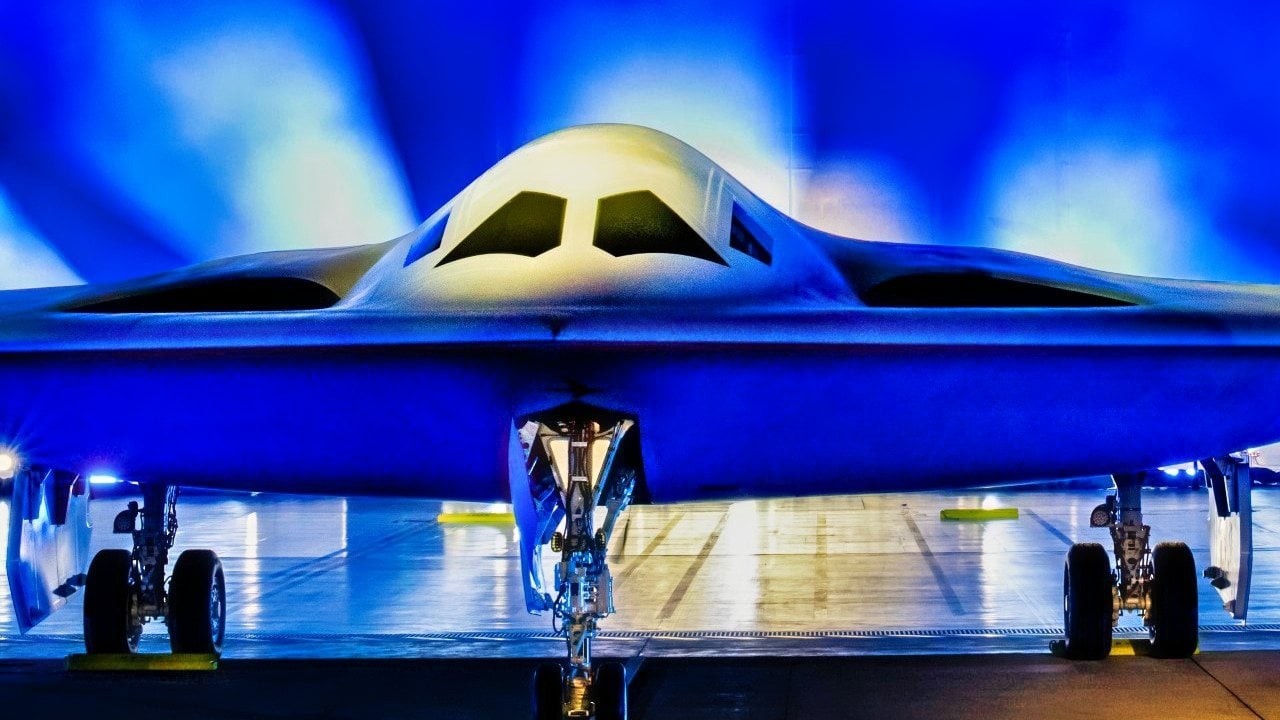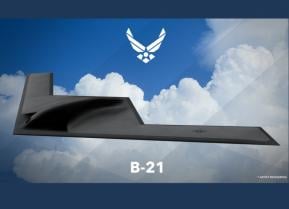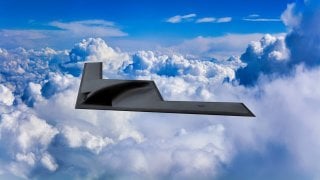Sell the B-21 Stealth Raider Bomber to Australia
The U.S. should consider selling the B-21 Raider stealth bomber to Australia under the AUKUS alliance, enhancing collective defense against rising threats like China.
Summary and Top Points: The U.S. should consider selling the B-21 Raider stealth bomber to Australia under the AUKUS alliance, enhancing collective defense against rising threats like China.
A Good Idea: Selling the B-21 to Australia would improve interoperability and reduce production costs, addressing the Air Force's challenge of acquiring the necessary number of bombers.
China Would Hate It: While concerns about technology security exist, the strategic benefits of sharing the B-21 with trusted allies outweigh the risks. Expanding the availability of this advanced platform among close allies would strengthen the collective military capability and ensure readiness in potential conflicts.
Why the U.S. Should Sell the B-21 Raider to Australia
The United States forms the “US” in AUKUS (Australia-United Kingdom-United States), a nuclear submarine deal signed three years ago. But the AUKUS formulation was not meant to stop at nuclear submarines. It was intended to be the basis of a greater military alliance between the three countries.
In keeping with that idea, and given economic and strategic constraints, the U.S. should make plans to sell the Air Force’s upcomig long-range stealth bomber, the B-21 Raider, to Australia.
Overcoming Limitations
This is a great idea because it not only increases interoperability between allied nations, but it will further reduce the onerous production costs of the B-21. The Air Force estimates that it needs 300 units of the costly B-21.
Under current political and budgetary conditions, at more than $300 million per plane, there is no way that the Air Force will ever get that many, no matter how many other systems they cannibalize in the effort.
The Air Force has since said they would settle for 100-150 units of this bomber.
Even that number is unattainable, and we have seen the Air Force fall well short of such requests before – for example, with the Air Force’s aging B-2 Spirit long range stealth bomber, 20 of which were produced.

The U.S. now is challenged by near-peer great power rivals and rogue states with growing, and in some cases nuclear, capabilities. The U.S. requires a robust long-range stealth capability. But the costs are high.
A Friend in Need…
Selling the B-21 to the Australians and allowing for them to stand up their own production lines would augment the overall AUKUS capabilities relative to those of China. It would also help to lower the overall production costs for the B-21. Allies might be useful, but it would be nice if they started sharing the burden of developing costly but necessary systems like the B-21.
Espionage is an obvious concern with sharing technology like the B-21, even with even a friendly nation like Australia.
After all, until Covid, the Australians were getting dangerously close with China. There’s no guarantee that the Australians will remain skeptical of China. The two nations are geographically close and need trading partners.
Worries About Espionage are Unfounded on B-21 Raider
So, a legitimate concern on the part of U.S. policymakers is about the security of this sophisticated technology. The wider one makes the circle, the cheaper the B-21 becomes, but the easier it is to have the B-21’s schematics leak to China.
Operational security is obviously a must for highly advanced state secrets such as the B-21 and its underlying technology. But at some point, not having enough of these birds creates even greater problems than the risk of secrets leaking to China.
The Trick is Not Minding That It Hurts…
In the opening sequence of the 1962 Oscar award-winning film, Lawrence of Arabia, the eponymously named Lawrence is sitting with his friend looking forlorn and playing with matches, all while waiting for adventure to come along and sweep him off his feet. As if to demonstrate to the audience that Lawrence was truly a strange and rare person of great strength, Lawrence decides to extinguish the flame at the end of the matches with his fingers.
Without so much as grimacing, Lawrence puts the flame out, prompting his friend to exclaim in bewilderment. When asked by his friend how Lawrence isn’t hurt, Lawrence replies, “The trick, Potter, is not minding that it hurts.”
That should be Washington’s outlook on the risks of selling Australia and other allies advanced American systems.
We need greater numbers of these birds, spread throughout the world, ready to fly and destroy our enemies. The only way this can be achieved is through selling the B-21 Raider to Australia, and likely to other top allies of the U.S. military.
Author Experience and Expertise: Brandon J. Weichert
Brandon J. Weichert, a National Interest national security analyst, is a former Congressional staffer and geopolitical analyst who is a contributor at The Washington Times, the Asia Times, and The-Pipeline. He is the author of Winning Space: How America Remains a Superpower, Biohacked: China’s Race to Control Life, and The Shadow War: Iran’s Quest for Supremacy. His next book, A Disaster of Our Own Making: How the West Lost Ukraine, is due October 22 from Encounter Books. Weichert can be followed via Twitter @WeTheBrandon.
All images are Creative Commons or Shutterstock.
From the Vault
Russia Freaked Out: Why the U.S. Navy 'Unretired' the Iowa-Class Battleships
Battleship vs. Battlecruiser: Iowa-Class vs. Russia's Kirov-Class (Who Wins?)


